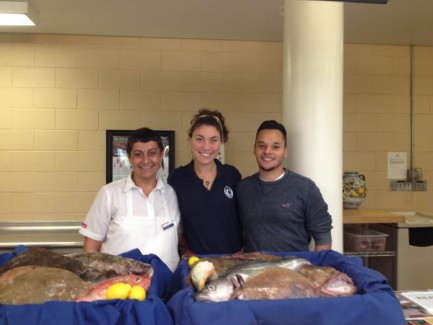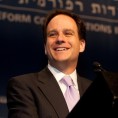A message from our Executive Director, Karla Van Praag.
There is a hunger in our Jewish communities to work for social justice that is greater than you can imagine. Greater than I did, anyway.
When we came up with the idea to create a large-scale online course to teach Jews about the role of community organizing in creating social change, there were initially many doubters (including on our own staff).
Some organizer friends cautioned us about the significant challenges that would come with teaching organizing online, and encouraged us to stick to in-person training. Others said people are too busy to participate in a long-form course. Two-hour tastes are more realistic, given people’s busy lives and the prevailing “click here” culture. Keep it short and sweet, and don’t ask too much of people.
We care deeply about the quality of our programs, and about the impact they should yield, so these critiques gave us serious pause. We wanted to design our course Don’t Kvetch, Organize! to take the best of what an online course can provide and merge it with what is most powerful about learning community organizing.
So we decided to take these comments not as a rejection of the concept but as advice.
We worked for months to design a curriculum with stimulating content. We recruited luminaries in the field as Master Trainers, and found Course Instructors with years of organizing experience to support our students.
Nowadays we are told to water things down, that people are too busy to do commit more than the most minimal time to anything new.
But changing the status quo requires a serious commitment. So we decided to go big, and to ask participants to devote significant time, energy, and passion over seven full weeks to learning organizing and beginning to take action. We set a stretch goal of 150 students for the first course.
It turned out not to be a stretch. We had to close registration months before the final deadline, and have a growing waitlist for next time. Today, over 200 students are immersed in Week Four of Don’t Kvetch, Organize!
We can see from the way our course participants are grappling with content in the discussion forums and section meetings that people are learning and growing, challenging long-held assumptions about the roots of inequality, and re-committing themselves to acting powerfully for change in their communities.
We are realizing from all this feedback that we hit a nerve. And we are remembering one of the most important lessons of organizing: no one is too busy to do something new when it taps deeply into their self-interest, connects them to community, and makes them feel powerful enough to make real change.
We are grateful to everyone who took this risk with us: our funders, our supporters, our Master Trainers and Course Instructors, and of course each student dedicating their time to learning and growing with us.
I can’t wait to see what they will accomplish.






 In November, at the United Synagogue of Conservative Judaism’s 2015 Convention, JOIN for Justice will launch an initiative to train clergy and synagogue lay leaders jointly in community organizing skills.
In November, at the United Synagogue of Conservative Judaism’s 2015 Convention, JOIN for Justice will launch an initiative to train clergy and synagogue lay leaders jointly in community organizing skills.  Rabbi Jonah Pesner, a JOIN for Justice board member and the Director of the Religious Action Center of Reform Judaism, delivered this sermon at Temple Israel on Yom Kippur in 2004. The words remain a powerful and timely call to action for our Jewish community to organize for justice. The sermon is excerpted below, and you can read the full version on the
Rabbi Jonah Pesner, a JOIN for Justice board member and the Director of the Religious Action Center of Reform Judaism, delivered this sermon at Temple Israel on Yom Kippur in 2004. The words remain a powerful and timely call to action for our Jewish community to organize for justice. The sermon is excerpted below, and you can read the full version on the 


